Do not underestimate the "no-name" electric cars
![]() 09/10 2024
09/10 2024
![]() 586
586
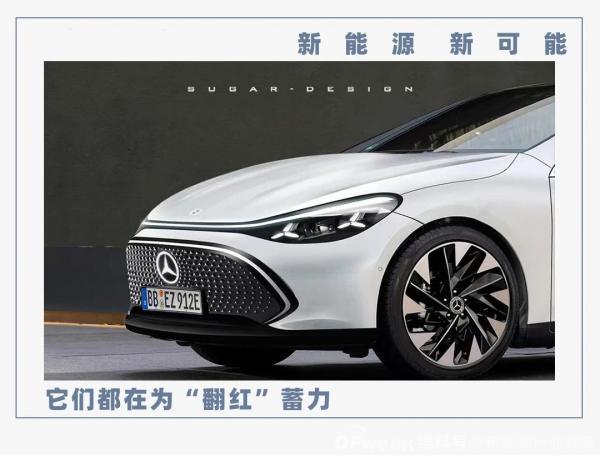
Original by New Energy Outlook (ID: xinnengyuanqianzhan)
Adding "electric" to no-name cars changes everything.
Traditional automotive giants like BMW, Mercedes-Benz, and Volkswagen, which once dominated the global market, seem to have suddenly become "no-name electric cars" with their new energy models.
Is this a misperception of the market or a misunderstanding of the truth? Can the dominant brands of traditional gasoline-powered vehicles regain their former glory in the new energy era?
1. Fading Brand Glory
From Quality Gasoline Cars to "No-Name" Electric Cars?
"After buying this car, I always feel a bit awkward when passing Tesla on the road," said Mr. Meng (pseudonym), the owner of a Mercedes-Benz EQE. His luxury car, despite its green license plate, fails to exude the aura of a premium vehicle and instead becomes an "outsider" in the eyes of others.
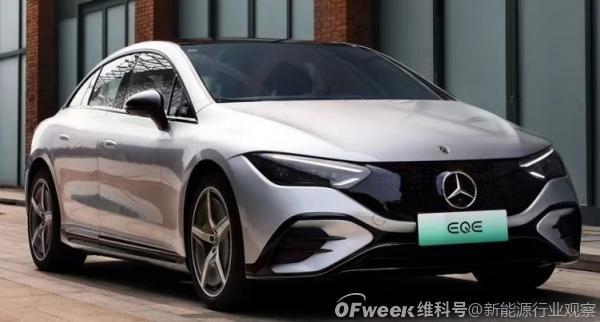
Photo/Mercedes-Benz EQE
Source/Screenshot from New Energy Outlook on the Internet
"Many people ask me why I bought an electric car from Mercedes-Benz. Who buys electric cars from Mercedes-Benz?" Mr. Meng is so tired of answering this question that he often just laughs it off.
Especially when colleagues driving Teslas always tease him with a smile, "This is a luxury brand, a big Benz!" Mr. Meng notes that the price of his EQE has been dropping significantly since he bought it. If given another chance, "I would go straight for the Model Y," he says.
Xiao Liu shares a similar sentiment. His green-licensed car is a BMW iX3. Having dreamed of owning a BMW since childhood, he seized the opportunity to buy an electric BMW when he was finally able to afford a car amidst the new energy wave.
However, to his surprise, he has become a "big fool" in the eyes of his friends. "They say I spent luxury car money on a no-name electric car, hahaha!" Despite the jokes, he can't help but laugh at himself, "Actually, this car drives quite well."
Data shows that nearly 40,000 iX3s were sold in 2023, while Tesla Model Y sold almost that many in a single month in the Chinese market during the same period.
The sales figures for Mercedes-Benz's EQ series electric cars are even bleaker, with monthly sales of each model hovering around three digits. For example, sales of the EQE model in the Chinese market were less than 10,000 units in 2023.
Looking at Volkswagen, the traditional German automotive giant, its electric car sales in the Chinese market in 2023 seem insignificant compared to the 3.269 million new vehicles delivered across all brands.
Behind this phenomenon lies several changes.
Firstly, with the rise of the new energy vehicle wave and the rapid growth of domestic brands, the market's perception of electric cars has long surpassed that of traditional gasoline-powered vehicles. Consumers now prioritize factors such as intelligence, battery life, and charging convenience when it comes to electric cars, rather than relying solely on the historical reputation of a brand.
Secondly, domestic new energy vehicle companies like Li Auto, NIO, and XPeng have won over consumers with their innovations in battery technology and smart connectivity. These brands have not only established a foothold in the domestic market but are also gradually expanding onto the global stage, showcasing the strength of Chinese manufacturing.
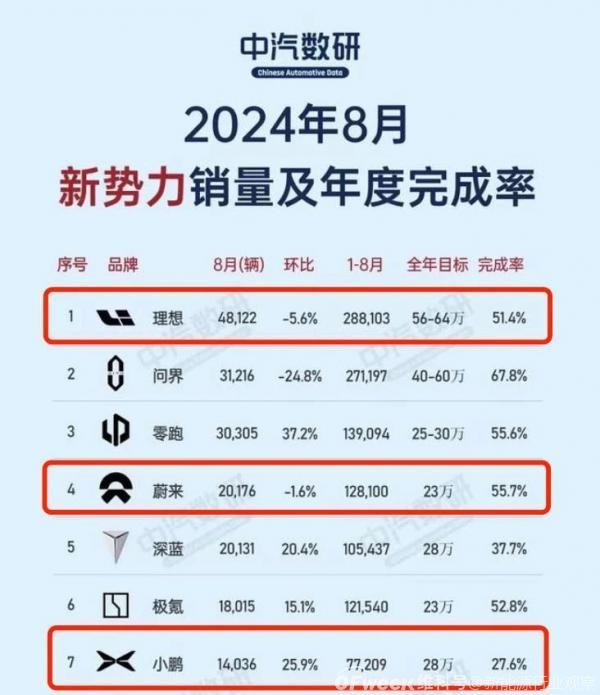
Photo/August 2024 New Force Sales
Source/Screenshot from China Automotive Data Research and New Energy Outlook
In contrast, even though companies like BMW, Mercedes-Benz, and Volkswagen have accumulated rich experience in gasoline-powered vehicle manufacturing, they may not have fully kept up with the market pace in terms of some key electric vehicle technologies and user intelligence experience. It is thus understandable that they are labeled as "no-name brands" amidst the thriving domestic new energy brands.
While these international brands may not be performing as well as expected in the electric vehicle market from a consumer perspective, it is undeniable that branding their electric cars as "no-name" overlooks the deep technical foundation they have accumulated in the gasoline-powered era.
2. The Global Supply Chain Secret
Local Advantages from China's Layout
It is worth noting that despite the new competitive landscape faced by brands like BMW, Mercedes-Benz, and Volkswagen in the electric vehicle market, this does not mean they have lost their technical strength and manufacturing capabilities.
It cannot be denied that traditional powerhouse brands such as BMW, Mercedes-Benz, and Volkswagen still maintain high standards in manufacturing processes and quality control. From engine technology to chassis tuning, from body design to safety performance, these brands have set unshakeable benchmarks in the global automotive industry.
Especially in terms of craftsmanship and quality, which consumers care most about, the electric cars of these brands are often not sloppy but even surpass some contract manufacturing brands. This unwavering pursuit of quality is a crucial hallmark that distinguishes them from "no-name" electric cars.
When it comes to the question of "no-name" electric cars, the supply chain issues of these international brands' electric cars cannot be ignored. In fact, with the deepening of globalization, the automotive manufacturing industry has long transcended national borders and formed a highly internationalized supply chain system. The success of giants like BMW, Mercedes-Benz, and Volkswagen in the Chinese gasoline-powered vehicle market owes much to their well-established supply chain system in China.
In the field of new energy electric vehicles, this trend will become even more pronounced. The reason is simple: China boasts the most comprehensive, advanced, and efficient electric vehicle industry chain in the world.
In the production process of electric cars, many core components of these international brands still rely on Chinese suppliers. As one of the world's largest automotive component production bases, China's supply chain offers advantages not only in cost control but also in providing high-quality and efficient production support.
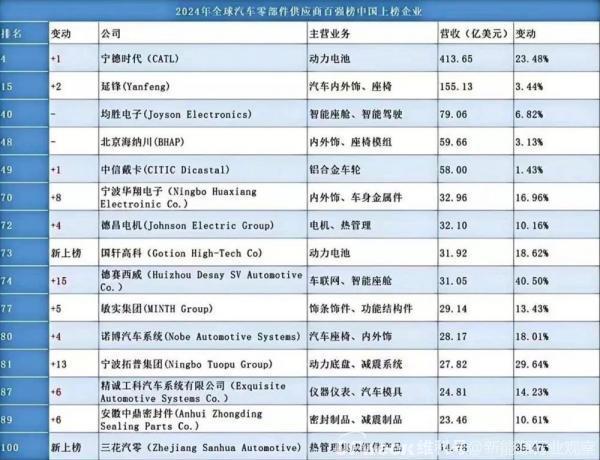
Photo/Global Automotive Component Suppliers in 2024
Source/Screenshot from the Internet and New Energy Outlook
From batteries and motors to electronic control systems, Chinese companies are well-represented in the supply chain of these core components. Tesla's Shanghai Gigafactory is a prime example, with its efficient operation relying heavily on the support of Chinese suppliers. Similarly, BMW, Mercedes-Benz, and Volkswagen have also sought and cultivated numerous high-quality suppliers in China, actively collaborating with Chinese companies to jointly develop new energy vehicle models suitable for different market demands, ensuring localized production and cost control of electric cars.
The Volkswagen Group has established multiple joint ventures in China and increased its investment in new energy vehicles. BMW and Mercedes-Benz are also making continuous efforts in the Chinese market, striving to maintain competitiveness amidst fierce competition through localized production and sales strategies.
This global localization strategy not only enhances production efficiency but also reduces product costs, enabling these international brands to adapt more quickly to market changes.
More importantly, these international brands' deep roots in the Chinese market allow them to fully leverage China's industrial advantages, such as its vast market size, sophisticated industrial system, and abundant human resources. At the same time, they retain their technological advantages, brand influence, and management expertise accumulated globally, achieving a deep integration of local advantages and global resources.
This integration endows electric cars from brands like BMW, Mercedes-Benz, and Volkswagen with strong competitiveness at the supply chain level, far surpassing that of genuine "no-name cars".
3. Quality and Trust
A Long Road Ahead for Traditional Powerhouse Brands
The "no-name" misconception about BMW, Mercedes-Benz, and Volkswagen electric cars stems largely from brand recognition inertia.
In the gasoline-powered era, these brands won widespread recognition from consumers with their superior performance, luxurious designs, and quality services. However, in the emerging field of electric cars, consumers are often more easily attracted by emerging brands flaunting "innovation" and "intelligence," overlooking the efforts of traditional brands in the electric vehicle sector.
To change this status quo, market education is crucial.
Brands like BMW, Mercedes-Benz, and Volkswagen need to showcase their innovations and competitive advantages in the electric vehicle field through various channels and methods, such as product launches, test drives, and consumer education lectures. This allows consumers to experience firsthand the excellent performance and quality of these brands' electric cars.
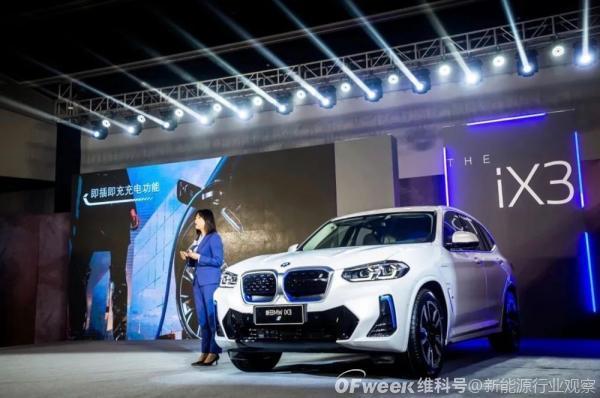
Photo/BMW iX3 Launch Event
Source/Screenshot from the Internet and New Energy Outlook
Moreover, they must strengthen cooperation with media, opinion leaders, and social platforms, leveraging word-of-mouth and social media marketing to enhance their brand awareness and reputation in the electric vehicle sector.
Changing market perceptions, however, is not an overnight process. It requires time, product iterations, and market validation.
As the electric vehicle market continues to mature and consumer demands diversify, traditional brands' electric cars will gradually demonstrate their unique charm and value. Eventually, consumers will no longer simply label these brands' electric cars as "no-name," but will instead view their efforts in the electric vehicle field more rationally.
Faced with fierce competition in the electric vehicle market, brands like BMW, Mercedes-Benz, and Volkswagen are continuously increasing R&D investments in key technologies such as battery technology, drive systems, and intelligent driving. They have also learned to leverage China's powerful industrial chain.
On the one hand, brands like BMW, Mercedes-Benz, and Volkswagen must prioritize quality control. It is essential to maintain the genetic makeup of traditional powerhouse brands in every vehicle produced. On the other hand, they must leverage China's new energy industrial chain, forging strong partnerships to excel in automotive quality and safety.
Here are a few examples: Volkswagen's ID.3, ID.4 CROZZ, ID.7 VIZZION, BMW's all-new BMW i3, and Mercedes-Benz's EQS SUV have opted for safer, more China-adapted battery brands over international ones, showcasing this commitment to quality.
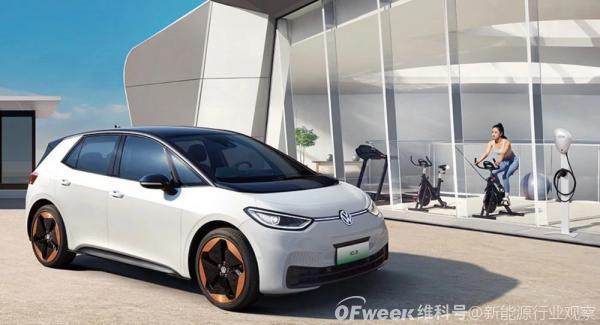
Photo/Volkswagen ID.3
Source/Screenshot from Volkswagen's official website and New Energy Outlook
It is worth emphasizing that even the Volkswagen ID.3, priced at just over 110,000 yuan, utilizes CATL batteries. This was a significant factor in Wang Xu's (pseudonym) decision to purchase the ID.3. In Wang Xu's view, Volkswagen's electric cars uphold the reputation of its gasoline-powered counterparts in terms of materials and craftsmanship, offering superior safety standards within its class. Furthermore, Volkswagen's aesthetic sense, honed over 40 years in China, perfectly caters to local preferences, making even its early gasoline-powered models still fashionable today.
In fact, not just Volkswagen, but also BBA's electric cars are commendable in terms of craftsmanship and materials. To shed the "no-name" label, they are actively exploring cutting-edge technologies such as connected vehicle networks and autonomous driving, aiming to match or even surpass domestic brands in intelligence and connectivity.
Continuous technological innovation enables these brands' electric cars to often outperform some emerging brands that rely solely on contract manufacturing in terms of performance, safety, and intelligence.
For instance, BMW has announced that it will invest over 30 billion euros by 2025 in the research and development of new energy vehicles to enhance product competitiveness. Mercedes-Benz has also pledged to invest over 40 billion euros in electrification and digitization by 2025.
Another crucial aspect is that these brands boast extensive dealer networks and service systems globally, providing customers with more comprehensive and convenient after-sales services. This is undoubtedly a significant attraction for consumers seeking high-quality lifestyles.








